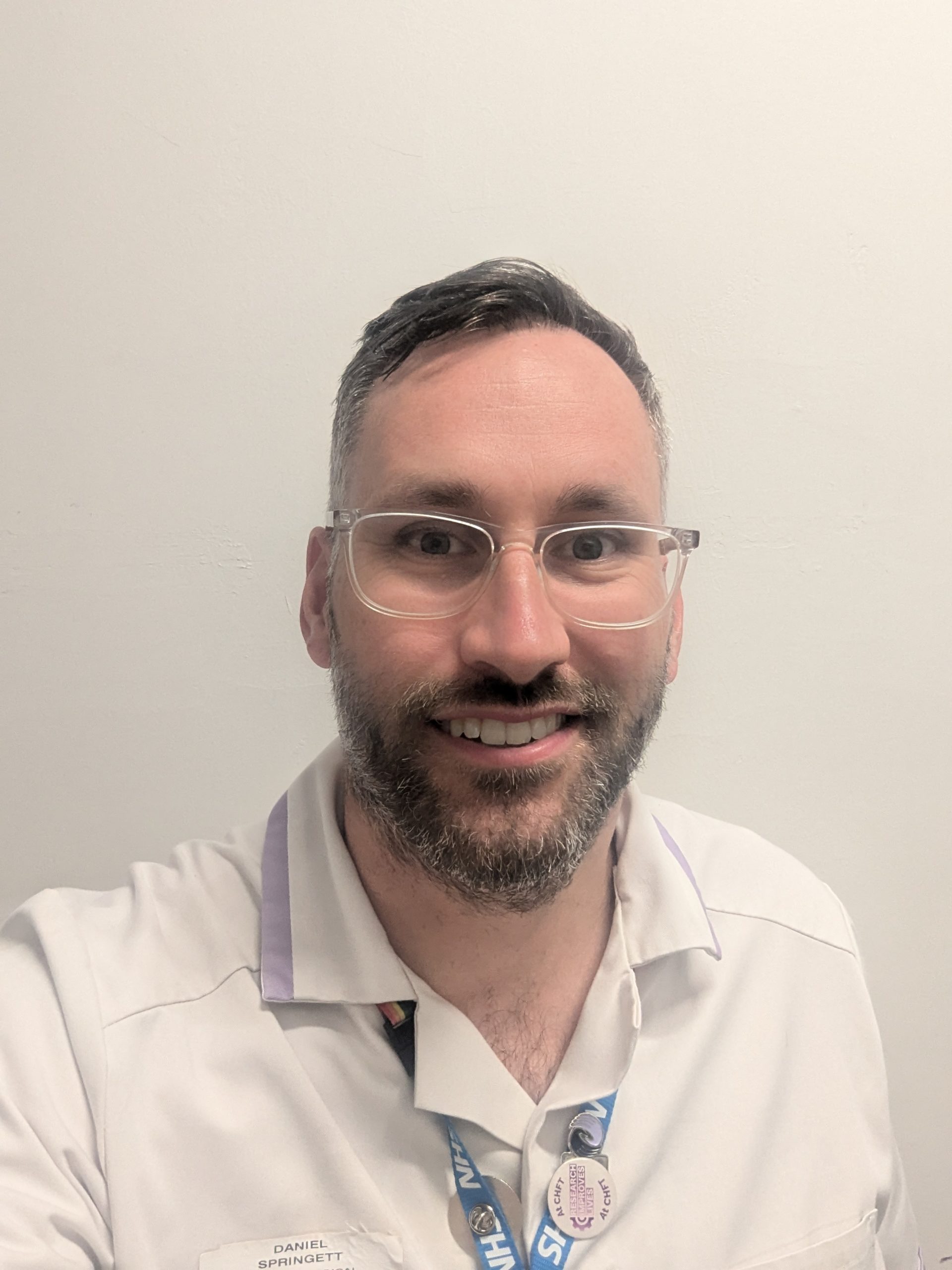How did you get into the role of an oncology physiotherapist?
Nicky (my colleague) approached Helen Ilsley, one of the leads in colorectal care about using some of the part time hours that had been made available from staffing changes combined with therapy funding in respiratory care. After three months in the role, I realised that if I wanted to make a difference then I needed to be here full time, so that is what happened.
What motivated you to pursue this speciality?
As to what motivates me in the role and this speciality; I think it is personal. I don’t know too many AHP’s that are happy to work in oncology, due to the stresses of it, but that is what I enjoy about it. I am passionate about care at all stages of living, for the patient and for the families/ loved ones and that is what I saw in the opportunity of this role.
Could you provide a brief description of your day-to-day work, including the speciality you focus on?
I typically come in and start by either having to site a patient in the morning, but more typically set up the plan for the day on who needs to be attended to on the ward. I see some of those patients for stoma care and/or post op advice.
Later on I usually have a stoma clinic that I support on or I will be doing admin work. I have a Prehab/ exercise clinic on Tuesday’s and a best supportive care clinic on a Monday.
Other days I may be reviewing surgery school or calling to book people into clinic. During my admin time I am chasing up the patients that I see in Prehab and doing follow ups for them, gathering feedback, writing my reports, etc.



